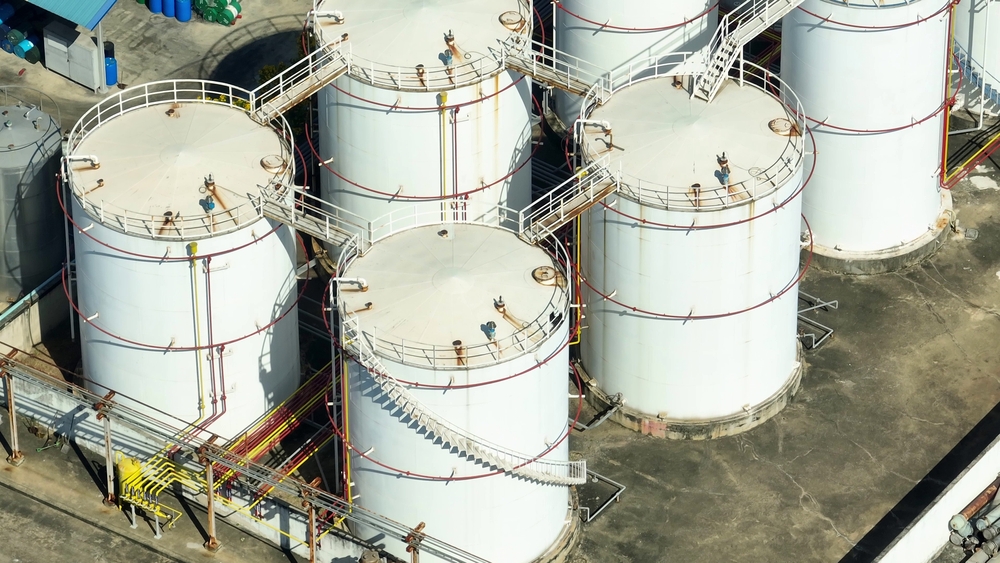As environmental awareness increases, so does the urgency to adopt sustainable practices in industrial activities. One significant area of focus is recycling used oil — if not properly managed, it can harm the environment.
Let’s find out about the traditional and advanced technologies transforming the used oil recycling process, highlighting innovations that mitigate environmental risks and offer substantial economic benefits.
The Environmental Impact of Used Oil
Used oil poses a significant hazard to the environment and public health. This highly polluting substance can swiftly contaminate soil and water systems, severely impacting both wildlife and human populations. Indeed, just one litre of improperly disposed used oil has the potential to contaminate up to one million litres of water, illustrating the drastic consequences of negligence in waste oil management.
Consequently, the deployment of robust used oil recycling technologies is not merely beneficial but essential. By enhancing the efficiency of the used oil recycling process, we can avert environmental degradation and reduce reliance on virgin oil resources, thereby promoting a more sustainable and responsible approach to resource management.
Traditional Methods of Used Oil Recycling
Traditionally, the recycling of used oil has relied on basic techniques like filtration and centrifugation, which are aimed at removing impurities. While these methods are effective to some extent in salvaging usable oil, they have substantial limitations. Notably, they frequently result in a significant residue of waste and fail to harness the full potential of the recycled oil.
Moreover, these conventional processes often do not meet the modern environmental standards required for sustainable operations. Enhancing these traditional methods with more advanced used oil recycling technology could dramatically improve the efficiency and environmental impact of the recycling process, ensuring that a greater proportion of the recycled oil is purified to a reusable standard with minimal waste generation.
Advancements in Used Oil Recycling Technologies
Innovation in recycling technologies has paved the way for more efficient and environmentally friendly solutions. Here are some of the leading technologies:
Microbial Bioremediation
Microbial bioremediation uses naturally occurring or genetically engineered microbes to break down the hydrocarbons in used oil into non-toxic substances. This method is environmentally benign and can be employed on-site, reducing the need for transportation and the associated carbon footprint.
Hydroprocessing Technologies
Hydroprocessing cleans used oil by subjecting it to high pressure and temperature in the presence of hydrogen, converting it into high-quality lubricants and fuels. This technology significantly reduces the emission of harmful by-products and improves the yield of recycled products.
Solvent Extraction Methods
Solvent extraction uses chemicals to dissolve impurities and separate them from the oil. Innovations in this method have focused on reducing harmful solvents and enhancing efficiency, making it a more sustainable option for high-purity applications.
Membrane Technology in Oil Recycling
Membrane technology involves filtering used oil through specially designed membranes that selectively separate contaminants. This highly efficient method produces cleaner products with fewer impurities than traditional methods.
Catalytic Processing Innovations
Catalytic processing uses catalysts to improve the chemical reactions involved in the recycling process, enhancing the quality of the output oil and reducing energy consumption. Recent advances have made these processes more robust and cost-effective.
Sustainability and Economic Benefits
The integration of these advanced technologies not only benefits the environment by reducing waste and pollution but also offers significant economic advantages. Recycled oil products can meet or even exceed the quality of new oils, providing substantial cost savings and opening up new markets for recycled products.
The Path Forward for Used Oil Recycling with Benzoil
As leaders in the recycling of used oil, Benzoil is enhancing sustainability and contributing to environmental protection. We turn waste into valuable resources that allow us to implement the most effective recycling technologies and exceed environmental standards.
Through innovative processes like briquetting and blending, we transform waste materials into marketable products — from organic fertilisers to valuable metal recovery — we demonstrate the economic and environmental benefits of effective waste management.
Together, we can maximise the potential of used oil, promoting both environmental health and economic growth. Join us in making every drop count towards a greener world.
FAQs
What is the most effective method of used oil recycling?
The effectiveness of a waste oil recycling method depends on the desired output quality and the specific type of oil being recycled. Hydroprocessing and catalytic processing are currently the most effective for producing high-quality recycled oils.
How does used oil recycling benefit the environment?
By minimising the need for new oil production, used oil recycling helps prevent soil and water pollution, reduces the use of virgin raw materials, and decreases greenhouse gas emissions.
Are there any risks associated with new recycling technologies?
While new technologies are generally safer and more efficient, risks can arise from handling chemicals in processes like solvent extraction and maintaining high-pressure systems in hydroprocessing. Proper safety and environmental management systems are essential to mitigate these risks.


